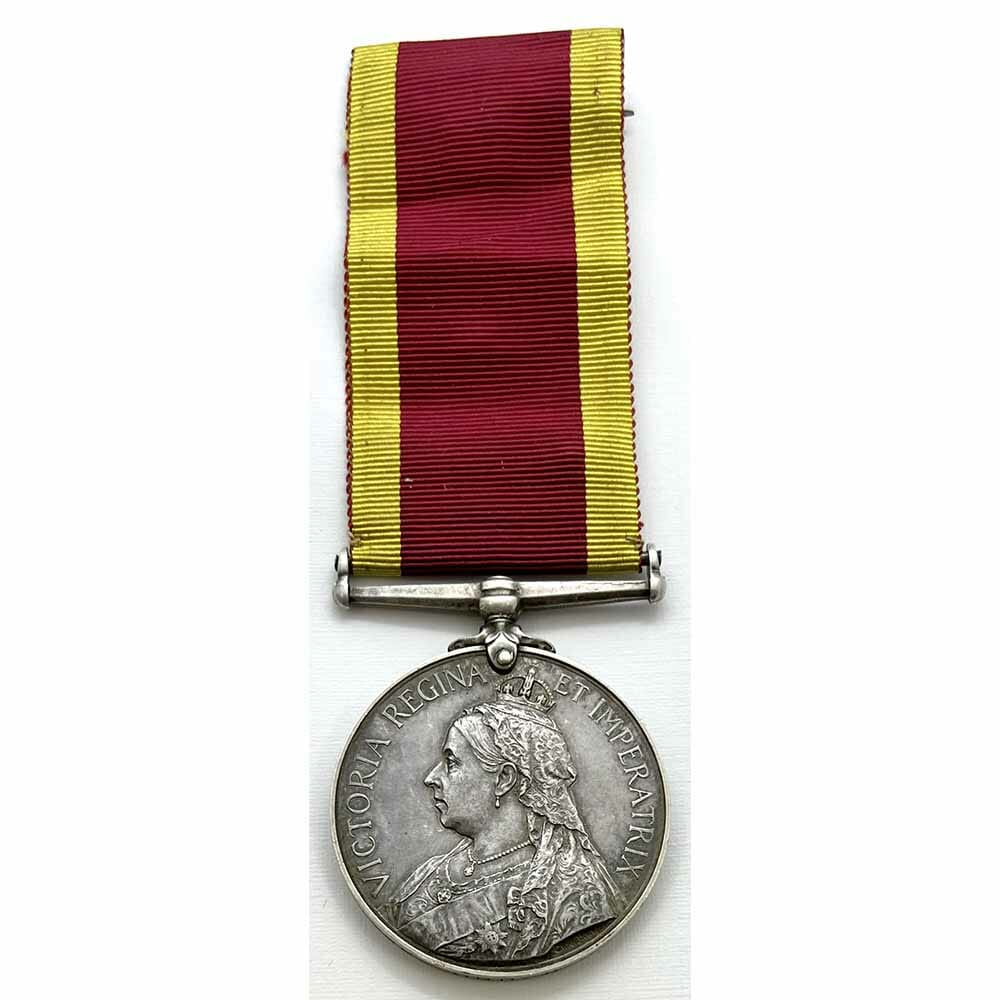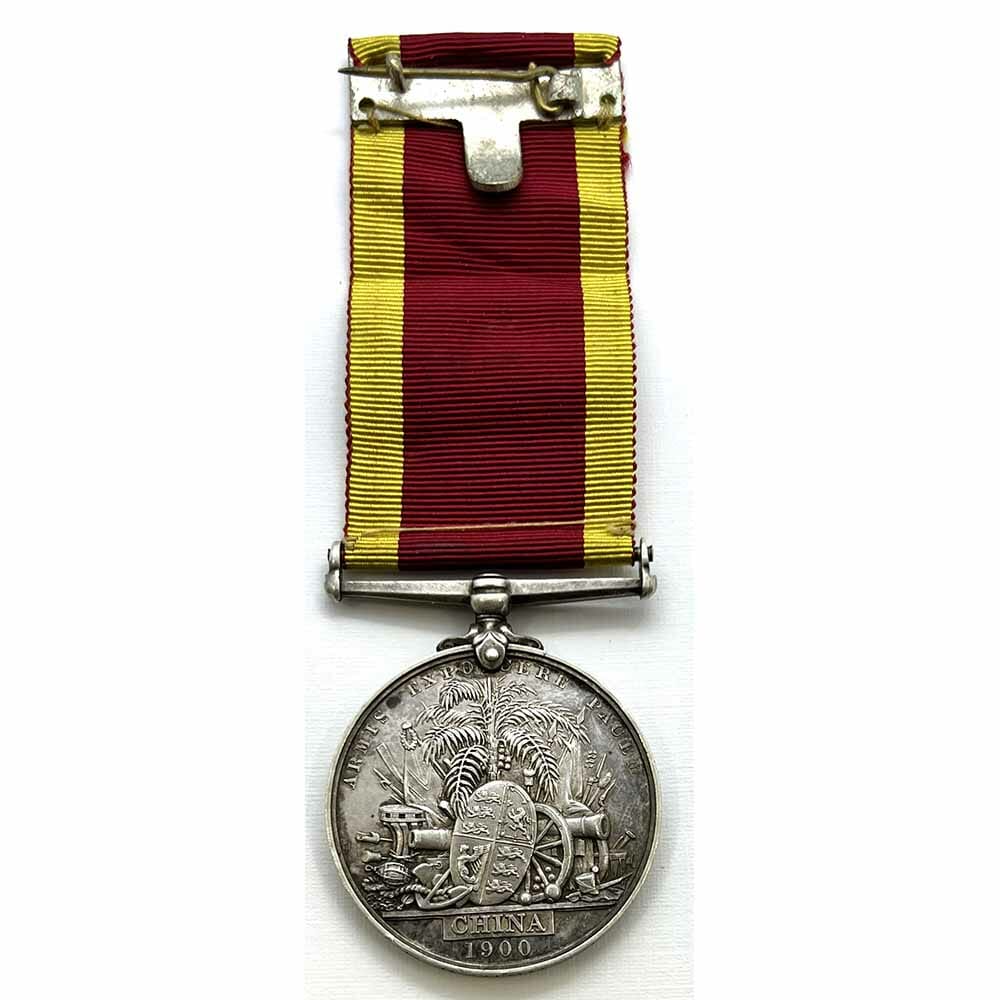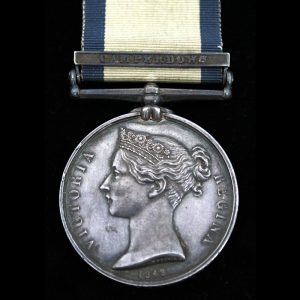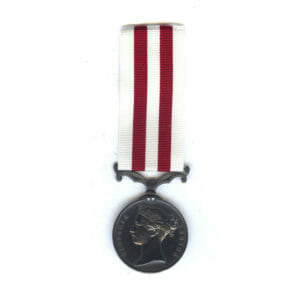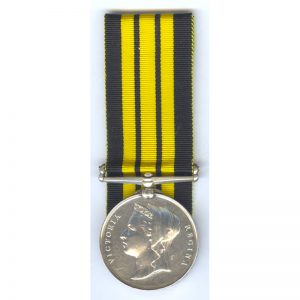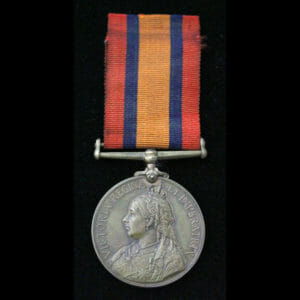Description
China Medal, 1900, Alexander McDonald Ballantyne, HMS Arethusa.
Officially impressed: “A. M. Ballantyne , H.M.S. Arethusa.”
Alexander Ballantyne was barely 18 years old when he was posted to HMS Arethusa and sailed for the “Boxer Rebellion” in China, following a long career his retirement was interrupted and he returned to the Navy for WW1, where he first served on HMS Sutlej and was one of only 7 men who, without hesitation, dived into the freezing “Western Ocean” when witnessing a small boat capsize next to them, One of the men from ship died after saving a life, and another from the small boat died, the men managed to save the rest leading to the award of the Royal Humane Society Medal in Bronze.
Following that, 2 years on HMS Juno, where his ship avoided sinking, after receiving a warning message of German U-Boats near them in Irish Waters they managed to get away and return back to port, the courtesy was not extended to the other nearby ship, the R.M.S. Lusitania, which was then famously sunk.
Details of the rescue from a letter sent home by Gunner George Ward, was published in the Burnley Express 1st May 1915:
“Gunner George Ward, who is now serving in the RFR, has been present with the Royal Humane Society’s medal and certificate for jumping into a rough sea from the H.M.S. Sutlej on Sunday, February 14th and saving life…..
It was while they were in what Ward calls the Western Ocean, on Sunday, February 14th, that the incident happened which won for him the medal and certificate of the Royal Humane Society.
‘It was a terrible day,’ says ward in his letter home, ‘I was fully dressed; boots on as well. A boat came alongside our ship and capsized, with 7 men in it. 7 of us jumped over the side, and it was a matter of saving one another.
I saved one of the other ship’s men and one of ours. 2 men got drowned, 1 from each ship; and we were lucky there weren’t any more. 1 man lost the use of 1 arm through the cold; one of our men is in hospital with his legs numbed with the cold; he is still in bed, but mending.
1 Man was all but drowned when we got him out. I was the last one our – and fit as ever.
All 3 were put in blankets for a few hours.
It was an awful sight to see men struggling for 3 hours, 14 of us in the water in a sea not fit for a small boat. But thank heaven we are here now. We only did our best.’ “
“On the 14th February 1915, a boat with 8 men on board capsized alongside one of HM Ships at sea. Setter, Selwood, Bennett, Ward, Cape, Ballantyne and Eugene Murphy, Petty Officer, all jumped in from the ship and exerted themselves in saving or attempting to save life. Murphy unfortunately lost his own life after saving one man.’
Case 41382, Petty Officer F.W. Setter, F.G. Selwood, Leading Signalman A.N. Bennett and Able Seamen George Ward, W.R. Cape and Ballantyne were all awarded the RHS Medal for this event.
An “In Memoriam” was awarded to Murphy’s family.
Alexander McDonald Ballantyne was born in Glasgow, Lanarkshire, on 12th August 1881.
He first joined the Royal Navy as a Boy 2nd Class on 17th February 1898.
He was barely 18 years old and a new Ordinary Seamen when he was posted to HMS Arethusa on 19th November 1899 and served on board throughout the China war, until 3rd April 1903.
Advanced to leading Seaman of HMS Trumph on 31st December 1905, being later reduced in 1909 for disobedience and negligence.
He was discharged to the RFR at Chatham on 12th August 1911.
Brought back for War Service on HMS Sutlej as the war began on 2nd August 1914.
Whilst on board he took part in the above sea rescue.
Joined HMS Juno on 10th March 1915, and on that ship became Leading Seaman on 6th March 1916.
Served on the Juno from 10th March 1915 until 23rd January 1917.
Notably during his time on HMS Juno, the ship was sent to the Persian Gulf and took part in an engagement at Bushire in July to August 1915 against Tangistani Raids under Rais Ali Delvari.
Following this it returned home to Queenstown, Ireland.
One day in May 1915 it received reports of possible enemy submarines in the area and after taking evasive action returned to port.
However this warning was not extended to RMS Lusitania, which was then sunk by a U-Boat on Friday, 7th May 1915.
